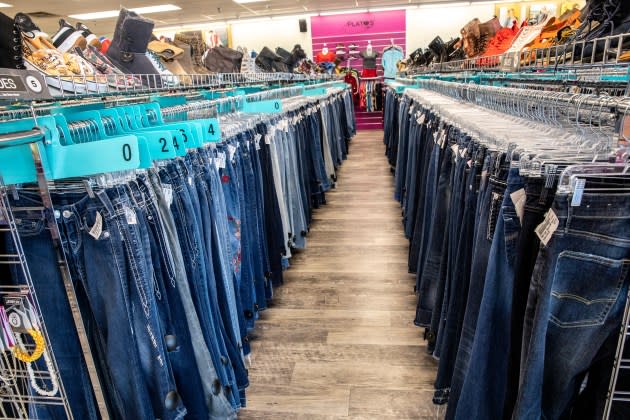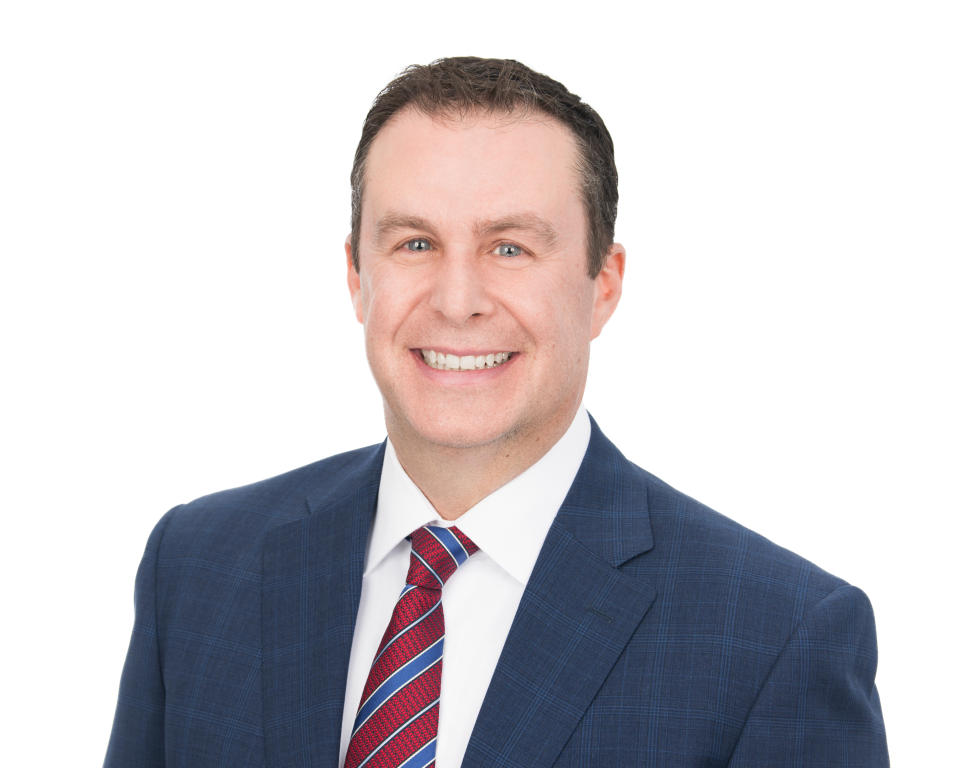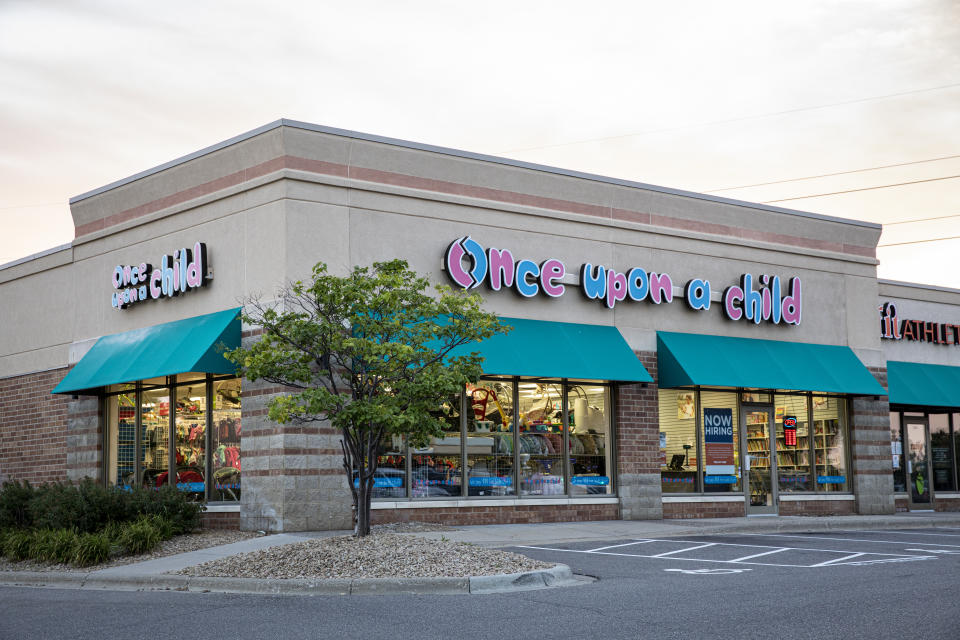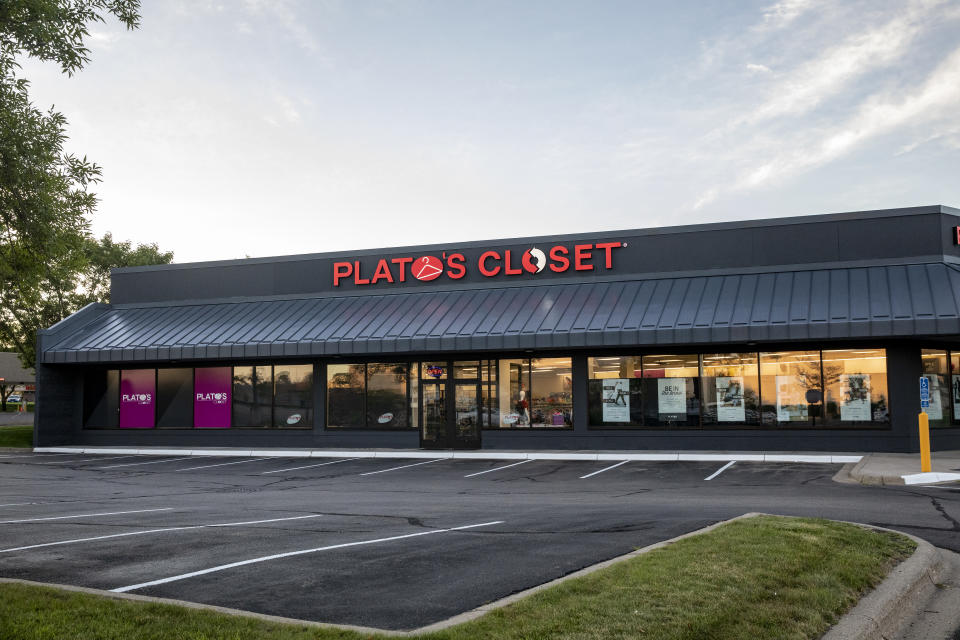Winmark’s Franchise on Resale

Sustainability agendas at many retailers are still in their early stages, but at Winmark Corp., it’s long been the bread and butter of the business.
The Minneapolis-based Winmark is the umbrella company for five retail divisions in the U.S. and Canada representing a total of 1,303 secondhand shops that are franchised and where consumers can buy and sell used apparel, sporting goods, musical instruments and children’s products. Winmark’s independent entrepreneurs can make money and simultaneously serve the community and the environment by recycling goods.
More from WWD
Kid's Resale Marketplace The Swoondle Society Acquires ShopTomorrows
New B-to-b Platform Croissant Guarantees Luxury Buyback Value Upfront
H&M, Primark Respond to Changing Markets Investigation, Underscore 'Zero Tolerance' for Waste
“We pump cash back into the community and we’re keeping items out of landfills. It’s the most convenient sustainable option in resale,” said Brett D. Heffes, Winmark’s chairman and chief executive officer.

After 35 years in business, Winmark has grown into a major player in the circular economy. The company claims it extended the life of 169 million items last year and 1.6 billion items since 2010.
Last year, Winmark’s five brands — Plato’s Closet for teen and young adult used apparel; Play It Again Sports for used sports equipment; Once Upon a Child for children’s apparel, equipment and toys; Music Go Round for musical instruments, and Style Encore for adult men’s and women’s fashion — in total generated more than $1.5 billion in sales.
Off those franchised retail operations, Winmark itself reported $39.42 million in net income, about flat from 2021. Revenues, primarily composed of royalties from franchises, reached $81.4 million compared to $78.2 million the year before. For the quarter ended July 1, the company generated $10.4 million in net income compared to $9.03 million in the year-ago period. Total revenues were $20.4 million, up from $19.1 million a year ago. There are no corporate-owned stores.
Based in Minneapolis, Winmark is listed on Nasdaq and not widely traded. “We’ve been public for 30 years but we’re very under the radar. Twenty shareholders, individuals and institutions, own about 73 percent of the company,” said Heffes, a large shareholder owning about 3.2 percent of the shares.
“We don’t have research analyst coverage or conference calls. We just want to be really aggressive with consumer marketing, franchisee marketing, and stay very low-key with respect to investor relations. That’s served us well over the years. I’m not trying to raise the profile from a financial standpoint. I’m trying to raise the profile from a consumer standpoint, and from the standpoint of adding new franchisees. I want everyone to know how special our business is. Our mission is to provide resale for everyone.”
Winmark has just begun raising its profile by forming partnerships. Rawlings, known for baseball equipment, was Winmark’s first brand partnership, signed last year. “We showcase the sustainability of their products, educating consumers about resale, and Rawlings directs their consumers to Winmark,” so each company spotlights the other, Heffes explained. Three partnerships were added this year: CCM, a hockey equipment brand; Elan, which specializes in ski gear, and Innova, for disc golf. Partnerships involve “buy drive” marketing efforts, charitable fundraising activities and store and online graphics spotlighting the partners.
Winmark is also the official resell partner of USA Hockey and the Los Angeles Kings. “Hockey is one of the most expensive sports for a family to participate in,” said Heffes. At Play It Again Sports, he said, “You can outfit your children in a much more economical way, 70 to 90 percent off a retail price.”
Winmark also sponsors pro golfer Tom Hoge and Blake Bolden, a former pro women’s hockey player, and her mentorship program for teen females.
“We don’t have any partnerships for apparel. We also need a golf partnership and we need a fitness partnership.” Winmark is in discussions with major retailers and brands for potential partnerships in these areas, though Heffes declined to cite any.
Heffes said Winmark has 70 franchise openings in the pipeline, all signed agreements. “It typically takes about 15 months from signing an agreement to opening the store,” he said. Long-term, Winmark sees 2,800 “open territories” where it would want to have a franchise, meaning with the 1,300-plus franchise stores currently open, there’s a perceived potential to have at least 4,100 locations.

To launch a franchise, Winmark typically requires a minimum net worth of $400,000, and $100,000 liquid. The average investment by a franchisee is between $350,000 to $400,000 though wide variances in the costs exist depending on the location, site improvements, and the size of the store, which impacts how much is spent on fixtures, buildout and materials. For example, franchisees report that a Plato’s Closet store can cost between $280,000 and $410,000. Once Upon a Child franchises can cost between $280,000 to $420,000 and Play It Again Sports, $300,000 to $400,000. “It’s a decent investment. We need to find owners that have some net worth or partners, enough of a net worth to have it capitalized properly,” Heffes said.
“We look for someone that wants to be involved in the local community, someone with a passion for the underlying subject matter, whether it’s sports, music, children, fashion, and who wants to be an owner-operator and actually run the store.”
Winmark has some 900 franchisees, including several operating more than one location. “Our view on how we grow is very different from many other franchisors out there,” Heffes said. “We want you to run a successful store. And if you want a second one, we’ll work with you to make that happen. But just do one at a time because we think that’s in their best interest and our best interest. We want to be very conservative with respect to making sure people don’t put themselves in harm’s way as they grow. But we love multiunit owners and we have a lot of multiunit owners, but our model is more of a single-store concept because you can do well with one store.”
It’s key that the central organization provides support and guidelines to franchisees, particularly when they start up.
“The main thing we do is teach them how to run the operating model. And we’ve been doing this for over 30 years,” said Heffes. “We have a very tight operating model around buying and selling gently used items. We provide a point-of-sale system that we developed and [franchisees] purchase from us. It’s proprietary, and it has a pricing matrix that really helps the individual owner know what to pay for the items” that people bring in for resale. Store owners get trained on how to buy. “It’s very analytical,” in terms of examining items. The condition, age, brand, and the model or style of the item are all taken into account. “Then the computer generates a price” that the franchisee could pay for the item.

Play It Again Sports is the only concept in the Winmark portfolio extensively selling new merchandise as well as used products. Forty percent of the merchandise sold is used, 60 percent is new. The other brands are selling virtually all used merchandise. According to the company, at Once Upon a Child, 95 percent of the merchandise sold is used, 5 percent is new. At Music Go Round, it’s 80 percent used, 20 percent new. And at both Plato’s Closet and Style Encore, 99 percent of the merchandise sold is used, and just 1 percent is new.
While age factors into the price a franchisee pays for a used item, Heffes said, “In our apparel business, we’re looking for current styles. We’re not a vintage store. But we would buy a 10-year-old guitar if it’s in good shape. It also depends on the brand for that.”
Stocking stores by buying used merchandise from people coming into the store suggests the possibility at times of having thin or lackluster assortments. But Heffes contended, “We fully believe if you’re following that operating model that we teach and train you on, you wouldn’t have a scenario of walking into an empty store.”
Heffes said Winmark stores have what off-pricers like TJMaxx, Burlington and Century 21 have. “It’s the treasure hunt — the joy of being a consumer of one of our concepts is you just never know what you’re going to find.”
Stores primarily operate in strip centers, near regional malls, though it’s not a mall concept. They’re typically situated near a Target, Walmart or Goodwill “where there is traffic, enough population. We are not a small-town concept. Think the ‘burbs and college towns. Atlanta, Chicago and Dallas are big markets for us.
“We’re doing true resale, and our focus on value means that our price points are very low,” said Heffes. At Plato’s Closet, Winmark’s largest brand targeting 15- to 25-year-olds, price points are right around $10 or $11 per item. Women account for 80 percent of the sales; men, 20 percent. At Once Upon a Child, Winmark’s second-largest concept, items average about $5 retail.
“We have this ability at the local level to buy and sell items profitably, for the individual franchisee, and it provides a substantial benefit to the environment,” said the CEO. “That’s what makes the model, in my opinion, so unique. If they follow the operating model, the stores can make money. There’s a very strong gross margin.”
In 2022, Once Upon a Child reported a 66.7 percent gross margin; Plato’s Closet, 63.3 percent; Style Encore, 59.1 percent; Play It Again Sports, 53.3 percent, and Music Go Round, 48 percent.
“We just think that we’re one of the best examples of shared value out there,” said Heffes.

Best of WWD

